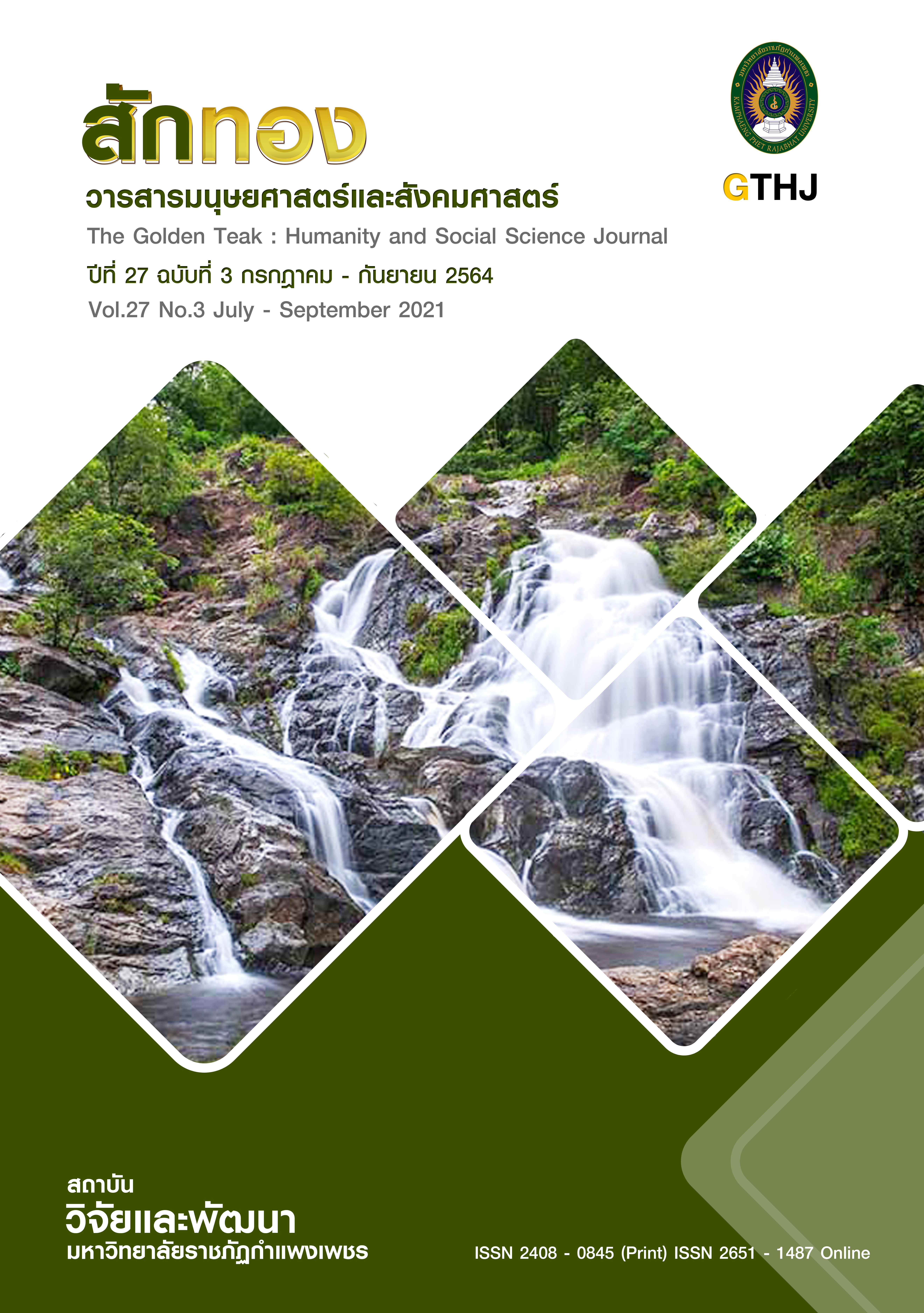Learning Management by using e-Learning in Fundamental Mathematics Course for Undergraduate Students
Main Article Content
Abstract
This research aims to compare mathematical learning ability with criterion, to study self-directed learning, and satisfaction after using e-Learning in Fundamental Mathematics course. The sample were 28 first-year students from Mathematics Program random by cluster random sampling. The instruments consist of online lessons created from the KPRU LMS e-Learning, mathematical learning ability test, the questionnaire about self-directed learning, and satisfaction. Data were analyzed by using mean, standard deviation, and t-test one sample. The result found that, 1) the first-year students had mathematical learning ability after using e-Learning in Fundamental Mathematics course was higher than the criterion of 70 percent with statistical significance at the level of .05. 2) The first-year students had self-directed learning overall at high level, when consider each item found that they can allocate time for study or work very well in highest average, then they were confident that there can learn new things by themselves, and they enthusiastic in study respectively. 3) The first-year students had satisfaction toward learning management by using e-Learning at high level, when consider each item found that they satisfied of the layout the text in highest average, then the screen design with appropriate color, the easiness to use menu, to read, and see of all content respectively.
Article Details
บทความที่ได้รับการตีพิมพ์เป็นลิขสิทธิ์ของวารสาร สักทอง : วารสารมนุษยศาสตร์และสังคมศาสตร์ สถาบันวิจัยและพัฒนา มหาวิทยาลับราชภัฏกำแพงเพชร
ข้อคิดเห็นใดๆ ที่ปรากฎในวารสารเป็นวรรณกรรมของผู้เขียนโดยเฉพาะ ซึ่งมหาวิทยาลัยราชภัฏกำแพงเพชรและบรรณาธิการไม่จำเป็นต้องเห็นด้วย
References
Guglielmino, L.M. (1977). Development of the Self-Directed Learning Readiness Scale. Dissertation, Ed.D. University of Georgia. Retrieved October 23, 2008, from UMI Proquest Digital Dissertations.
Janin, P. (2016). The Comparison of Learning Achievement of E-learning Style and Normal Style. The Colden Teak : Humanity and Social Science Journal, 22(1), 21-27.
Nakto, A. & Chindanurak, A. (2012). Development of E-learning lessons on the topic of fundamental mathematics. Bangkok : Rajamagala University Of Technology Krungthep.
Panich, V. (2012). Way to create learning for students in 21st Century. Bangkok : Tathata publication.
Rangpung, T. (2011). E-learning development of Principles of Mathematics. Ubonratchatani : Ubon Ratchatani Rajabhat University.
Siboonnun, T. (2019). The Development of the e-Learning for Accounting 1. The Colden Teak : Humanity and Social Science Journal, 25(3), 68-75.
Thammetar, T. (2014). E-Learning : from theory to practice. Bangkok : Sahamit printing and publishing.
Thongboonrith, K. (2016). The study of learning achievement of students using e-Learning on Science and Technology for Development. The Colden Teak : Science and Technology Journal, 3(2), 41-46.
Waranyanukrai, S. (2014). The Use of Online Learning Management System to Improve Students’ Learning Achievement on Digital Library Development. Journal of Information Science, 32(2), 1-23


